8. Crash (2005)
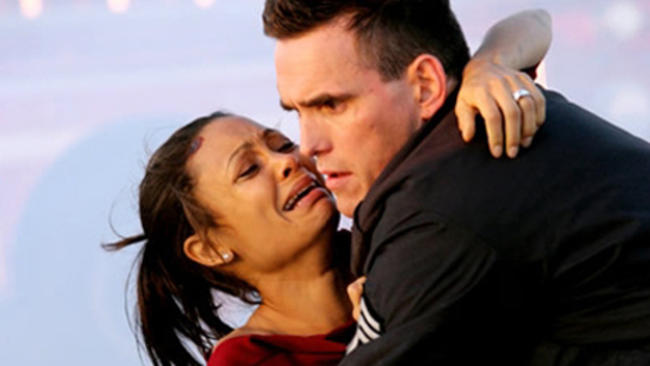
There has been plenty written about this film. Whether it comes from a place of praise (Roger Ebert named it the best film of the year) or a place of ridicule (many cite it as one of the worst Best Picture winners ever), Crash is now famous as the preachy film about racism that beat the favored Brokeback Mountain.
Several characters’ stories interweave during two days in Los Angeles: a black detective estranged from his mother; his criminal younger brother and gang associate; the white district attorney and his irritated, pampered wife; a racist white police officer who disgusts his more idealistic younger partner; an African American Hollywood director and his wife who must deal with the officer; a Persian immigrant father who is wary of others; and a hard-working Hispanic family man, a locksmith.
The film stars Sandra Bullock, Don Cheadle, Matt Dillon, Jennifer Esposito, Brendan Fraser, Terrence Howard, Chris “Ludacris” Bridges, Thandie Newton, Michael Peña, and Ryan Phillippe.
The film received six Academy Award nominations, including Best Picture and Best Director for Paul Haggis, and won three for Best Picture, Best Original Screenplay, and Best Film Editing.
Despite not being nominated for any of the three Golden Globe Awards for Best Motion Picture (Best Drama, Best Comedy/Musical and Best Foreign Film), Crash was not only nominated but won Best Picture. Critic Kenneth Turan argued that Crash benefited from homophobia among many Academy members who chose it over Brokeback Mountain.
Although the cast is terrific as a whole, the film overall comes off as preachy, and excessive. It is an okay film, but it shouldn’t have been nominated for Best Picture, let alone won. In a 2015 re-polling of Academy members, Brokeback Mountain was voted Best Picture over Crash and the other 2006 nominees. I think I can just leave that last statement there.
9. The Artist (2011)
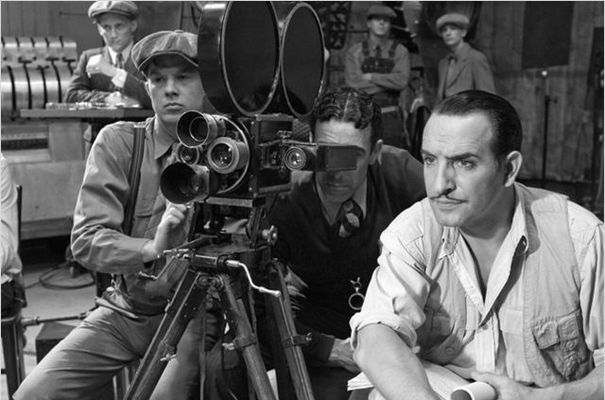
This romantic-comedy drama took the world by storm in 2011, winning five Academy Awards, and being the silent film that people actually wanted to watch. Starring Jean Dujardin and Bérénice Bejo, the film is, in many ways, a retelling of A Star is Born, focusing on the relationship of an older silent film star and a rising young actress as silent cinema falls out of fashion and is replaced by the “talkies.”
At the Oscars, The Artist was nominated for 10 awards, the second-most of the night, only behind Hugo. It won Best Picture, Best Director, Best Actor for Dujardin, Best Original Score, and Best Costume Design. The film tied with Hugo for the most awards of the night.
Dujardin became the first French actor to win an Oscar, the film became the first silent picture to win since 1927’s Wings (the very first Best Picture winner), and it was the first film entered in black and white to win the top prize since 1960’s The Apartment. That’s a lot of history for a small French film with unknown actors to Western audiences. The Artist is actually the most awarded French film in history.
Then why is it forgotten? Besides making all that history and being quite successful at the box office, the film and its director in particular are not well remembered. Dujardin has made appearances in other films and director Michel Hazanavicius has made other films in France, but The Artist is forgotten because it gets lost.
Most of the cast and crew have not done anything of note stateside, and that’s part of how we remember films: who were the stars. 2011 wasn’t the best year for film, and although The Artist was very good, it’s not the memorable classic that other Best Picture winners have become. I guess we’ll have to see.
10. Iris (2001)
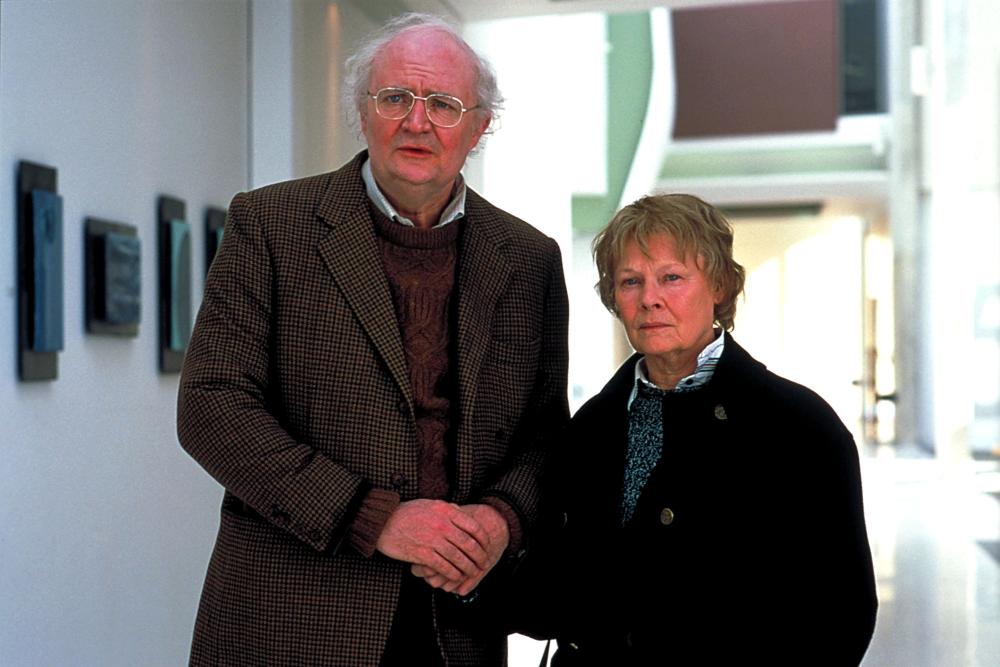
This drama tells the true story of British novelist and Dame Iris Murdoch and her relationship with literary critic and writer John Bayley. The film contrasts the start of their relationship—when Murdoch (Kate Winslet) was an outgoing, dominant individual compared to her timid, scholarly partner (Hugh Bonneville)—and their later life, when Murdoch (Judi Dench) was suffering from Alzheimer’s disease and was tended to by a frustrated Bayley (Jim Broadbent) in their North Oxford home in Charlbury Road.
Based on Bayley’s memoir Elegy for Iris, the film was directed by Richard Eyre, and nominated for three Academy Awards. Kate Winslet and Judi Dench were nominated for Best Supporting Actress and Best Actress, respectively, and Jim Broadbent won an Oscar in the Supporting Actor category for his portrayal of John Bayley. I
ris received positive reviews from critics, with a 79% “fresh” rating on Rotten Tomatoes from a sample of 109 critics. The film was successful at the box office, grossing three times its budget.
Iris is a performance-driven film, hence the acting nominations, with no other nominations. These types of films are usually great, as this one is, but they do not always tend to be memorable. It’s also been 15 years since this film came out, and its story of British writers and their relationship has not gripped audiences in a while.
11. The Reader (2008)
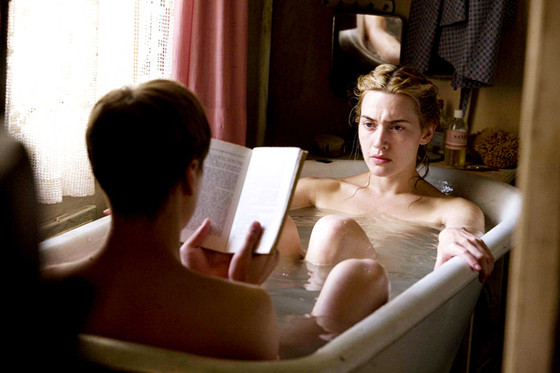
Stephen Daldry, who also made another forgettable Oscar contender, Extremely Loud and Incredibly Close, gives us the adaptation of the 1995 German novel of the same name by Bernhard Schlink. The film was written by David Hare and stars Ralph Fiennes and Kate Winslet along with the young actor David Kross. It was the last film for producers Anthony Minghella and Sydney Pollack, both of whom had died before it was released.
It tells the story of Michael Berg, a German lawyer who, as a mid-teenager in 1958 had an affair with an older woman, Hanna Schmitz, who then disappeared only to resurface years later as one of the defendants in a war crimes trial stemming from her actions as a guard at a Nazi concentration camp.
Michael realizes that Hanna is keeping a personal secret she believes is worse than her Nazi past – a secret which, if revealed, could help her at the trial. Winslet and Kross received much praise for their performances, with Winslet winning several awards, including the Academy Award for Best Actress.
Overall, the film was nominated for five Oscars, which include Best Picture, Director, Cinematography, Actress, and Adapted Screenplay, with only Winslet winning.
Although Winslet does give a dynamite performance, and David Kross is also spectacular, the film is just not remembered. I categorize it under the category of “Oscar is going to love that and no one will care in a month,” and that is exactly what happened.
A positive is that this is the film that finally earned Winslet an Oscar, something she definitely deserves. It was also nominated for Best Picture over The Dark Knight and WALL-E. Just saying. At least people still watch those movies.
12. Frost/Nixon (2008)
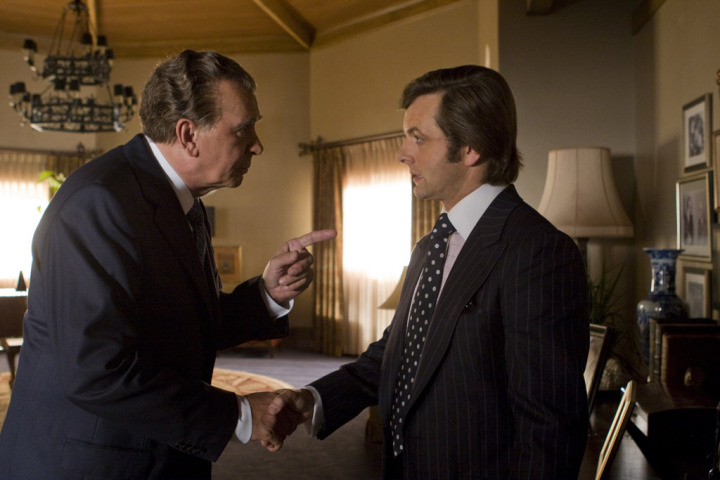
Based on the 2006 play by Peter Morgan, who adapted his own work here, Frost/Nixon tells the story behind the Frost/Nixon interviews of 1977. The film reunites its original two stars from the West End and Broadway productions of the play: Michael Sheen as British television broadcaster David Frost and Frank Langella as former United States President Richard Nixon.
The film was directed by Ron Howard and received five Academy Award nominations. The nominations were in the categories of Best Picture, Best Director, Best Actor for Frank Langella’s performance, Best Adapted Screenplay, and Best Editing. Frost/Nixon barely made back its budget of $25 million, grossing about $27 million.
The film received quite a bit of critical acclaim, with Langella’s performance putting him right in the mix for Best Actor. As Roger Ebert said, Langella and Sheen “do not attempt to mimic their characters, but to embody them.”
Although Morgan took dramatic license and the film and play are not entirely accurate, it is still based in fact. Frost/Nixon lost each of the categories it was nominated in and much like its fellow Best Picture nominee The Reader, its historical prowess and performances made it Oscar fodder, but have not helped it to age well.
13. Michael Clayton (2007)
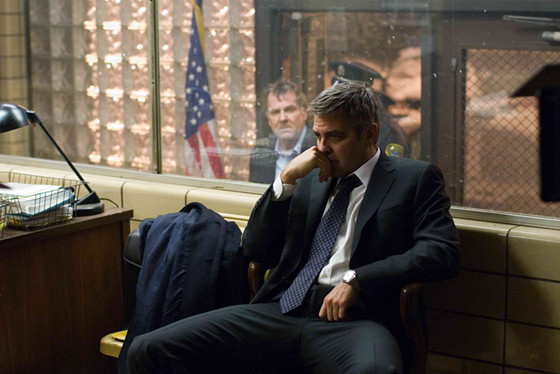
Facing a villainous corporation loosely based on the multinational Monsanto, Michael Clayton stars George Clooney, Tom Wilkinson, Tilda Swinton and Sydney Pollack, and is written and directed by Tony Gilroy.
The film chronicles the attempts by attorney Michael Clayton to cope with a colleague’s apparent mental breakdown and the corruption and intrigue surrounding a major client of his law firm being sued in a class action case over the effects of toxic agrochemicals.
The film received positive reviews and was nominated for seven Academy Awards, including Best Picture, Best Director, and Best Original Screenplay for Gilroy, Best Actor for Clooney, and Best Supporting Actor for Wilkinson, with the incomparable Swinton winning the award for Best Supporting Actress. The film was one of the best-reviewed films of the year, with extra focus placed on the greatness of the script and the performances, particularly Swinton’s.
The film appeared on many critics’ top ten lists of the best films of 2007, including the number one spot for Claudia Puig, Richard Roeper, and Richard Schickel. On Oscar night, the “dark” Oscars as they were referred to, Michael Clayton was overshadowed by There Will be Blood, and Best Picture winner No Country for Old Men.
Even with seven nominations and a win for Tilda Swinton, Michael Clayton has been forgotten in the scope of recent greats. It’s a great legal drama and Swinton owns every moment of her screen time. It’s a shame that many do not remember this gem.
14. Master and Commander: The Far Side of the World (2003)
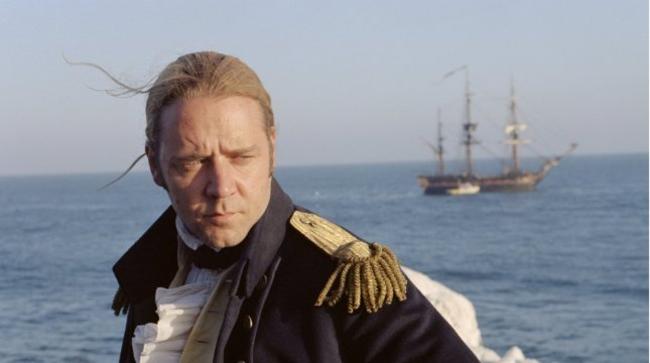
Based on the three novels in author Patrick O’Brian’s Aubrey-Maturin series, which includes 20 completed novels of Jack Aubrey’s naval career, Master and Commander: The Far Side of the World is a historical epic drama starring Russell Crowe as Captain Jack Aubrey and Paul Bettany as Dr. Stephen Maturin.
At the 76th Academy Awards, the film was nominated for 10 Oscars, including Best Picture. It won in two categories, Best Cinematography and Best Sound Editing and lost in all other categories to The Lord of the Rings: The Return of the King.
The film was critically well received, as 85% of 208 reviews tallied by the aggregate web site Rotten Tomatoes gave the film an overall positive rating. The film was even shortlisted as one of the best epic films of all time by the American Film Institute.
However, in the face of the box office and critical juggernaut that was the finale to the Lord of the Rings trilogy, Master and Commander got lost in the news. Return of the King won 11 Oscars that night, and with no acting nominations, Master and Commander did not receive the press, even with its two Academy Award wins.
Director Peter Weir said that a sequel is unlikely, and Russell Crowe has a failed Twitter campaign for a sequel as well. With no sequel in sight, and the failure of In the Heart of the Sea right in the rear view mirror, ship epics aren’t what people are wanting nowadays. That might explain how a good epic like Master and Commander: The Far Side of the World got lost at sea.
15. Chocolat (2000)
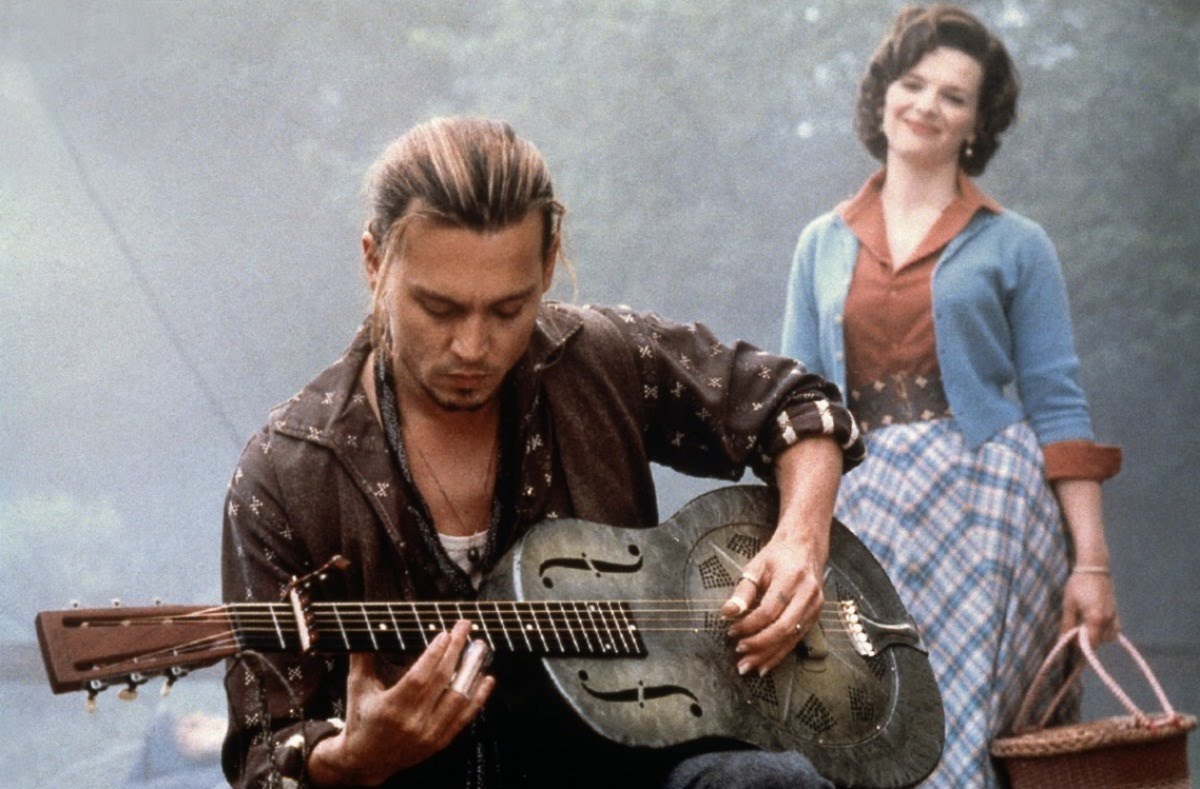
I know everyone totally remembers this one. The film where the lady from The English Patient has a French-style chocolate shop and Judi Dench plays her elderly landlady.
How could you forget? Chocolat is a French-American comedy-drama directed by Lasse Hallstrom, a director who has made other sappy, glossy, shallow films that the Academy loved and that haven’t stood the test of time, such as the embarrassing The Cider House Rules.
Adapted by screenwriter Robert Nelson Jacobs, from the novel of the same name by Joanne Harris, Chocolat tells the story of a young mother, played by Juliette Binoche, who arrives at the fictional, repressed French village of Lansquenet-sous-Tannes with her six-year-old daughter and opens La Chocolaterie Maya, a small chocolaterie. Of course, her chocolate quickly begins to change the lives of the townspeople.
The film was nominated for five Academy Awards, including Best Picture. It was also nominated for eight BAFTAs and four Golden Globes. Judi Dench won a Screen Actors Guild Award for her performance in the film. It received overall positive reviews, many praising its light-hearted nature and the performance of Binoche.
It’s a fine movie, but the fact that it got nominated for Best Picture is ludicrous. Chocolat is forgotten because it wasn’t memorable in the first place: it’s a film about a French lady and chocolate. Judi Dench makes it watchable.
Author Bio: Ryan Anderson is a sophomore at Miami University in Oxford Ohio, where he is studying Zoology and Women, Gender & Sexuality Studies. His love of classic cinema and film history keeps his love for film strong and ever-present in his life.